Note: Although many details of Gandhi’s life are public information at this point, it is important to clarify the specific sources used for this post. In the interest of relying on an accessible, fairly neutral source, most details in this biography were found on the Wikipedia pages for the holiday or for Gandhi himself, though various Indian English news sources were consulted to confirm that the Wikipedia narrative was accurate and to verify possible interpretations. Key terms with explanatory Wikipedia links were preserved for educational citation purposes, and direct quotes were cited. The post was prepared in late September of 2023, so any updates to the Wikipedia pages after October 1 2023 may cause discrepancies with the quoted material.
Gandhi Jayanti, celebrated on October 2nd, commemorates Mahatma Gandhi’s birthday and honors his role in Indian independence from British colonization.
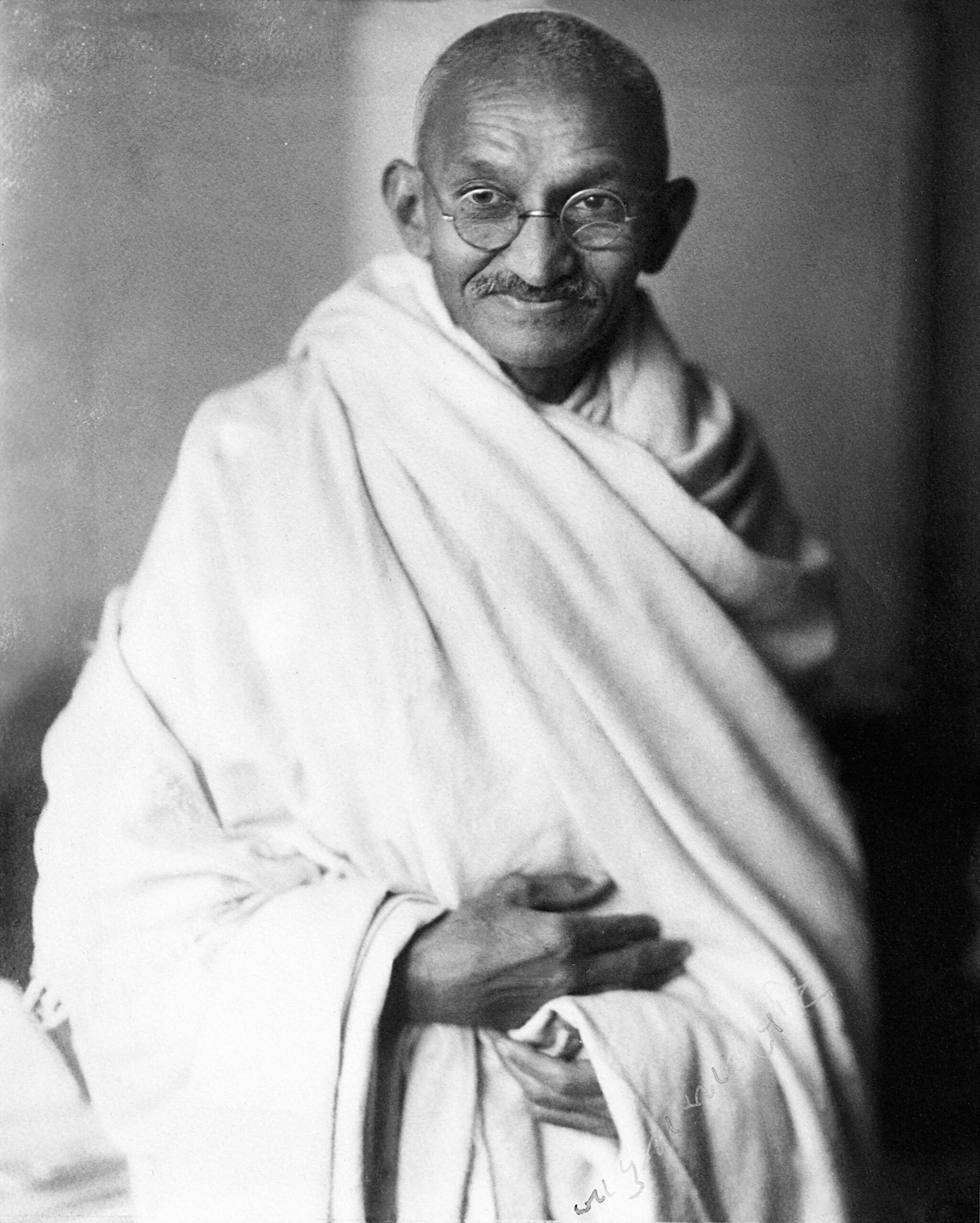
Biography of Mahātmā Gandhi
Mohandas Karamchand Gandhi (2 October 1869 – 30 January 1948) was the youngest child in a Hindu family in Gujarat, a province on the western coast of India that is north of Mumbai and south of Pakistan. His father, Karamchand Uttamchand Gandhi, was the chief minister of Porbandar state, and his mother Putlibai was very pious and religious, teaching her son many traditional Pranami cultural and religious values. As an adult, Gandhi became a lawyer, an anti-colonial nationalist, and a political ethicist.
Gandhi married at a young age and had four sons with his wife, Kasturbhai, who was one year older than him. Their first two children were born in India while he was studying law in London (returning to India for holidays); the next two were born in South Africa.
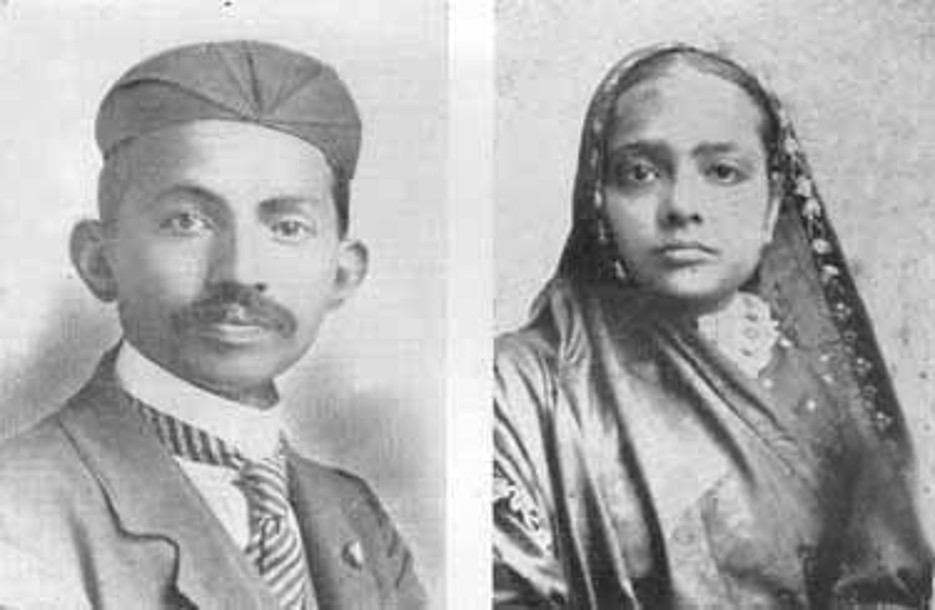
In their early 20s, Mohandas and Kasturbhai moved to South Africa so that he could practice law. They lived there for 21 years, and they became involved in civil rights campaigns, where they started using nonviolent resistance methods. Mohandas was imprisoned many times for his efforts (and Kasturbhai was imprisoned once), but they continued their efforts. However, after nearly dying in 1908 during a peaceful protest of Mohandas’s imprisonment, Kasturbhai found that she could not fast for long periods of time, as it worsened her chronic bronchitis and bouts of pneumonia. People in South Africa began addressing Mohandas with the honorific Mahātmā (from Sanskrit ‘great-souled, venerable’) in 1914, near the end of their time there. This title spread with the fame of his actions, and it is now used throughout the world.
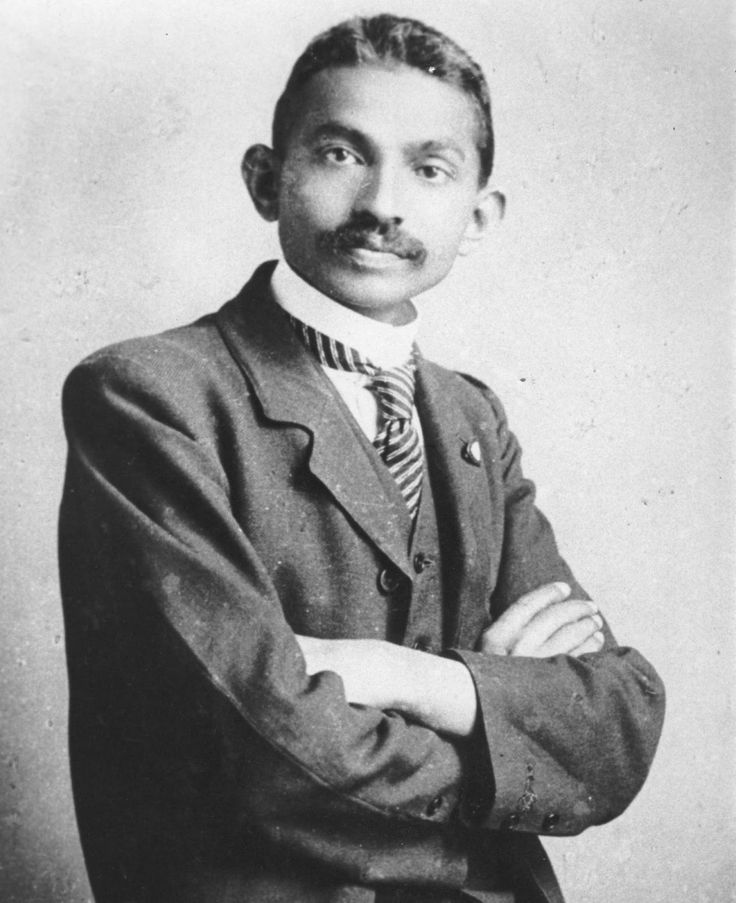
The Gandhis returned to India in their early 40s to help local people protest against high land taxes and discrimination. The Mahātmā became the leader of the Indian National Congress in 1921 and organized national efforts to reduce poverty, increase women’s rights, encourage ethnic and religious harmony, abolish the “untouchable” caste degradation, and establish self-rule for Indians. To accomplish these goals, he wore rough-spun clothing associated with rural impoverished people, lived in simple housing and ate simple food, and regularly fasted for long periods of time in order to stay humble and peacefully protest. Kasturbhai participated in many of these protests, as her health would allow. Most famously, the Gandhis used nonviolent resistance to lead the successful campaign for India’s independence from British rule and the end of British colonial occupation. He was imprisoned for his efforts in India, just as he had been in South Africa, but he continued to peacefully resist. His actions inspired movements for civil rights and freedom across the world, including Desmond Tutu and Martin Luther King, Jr.
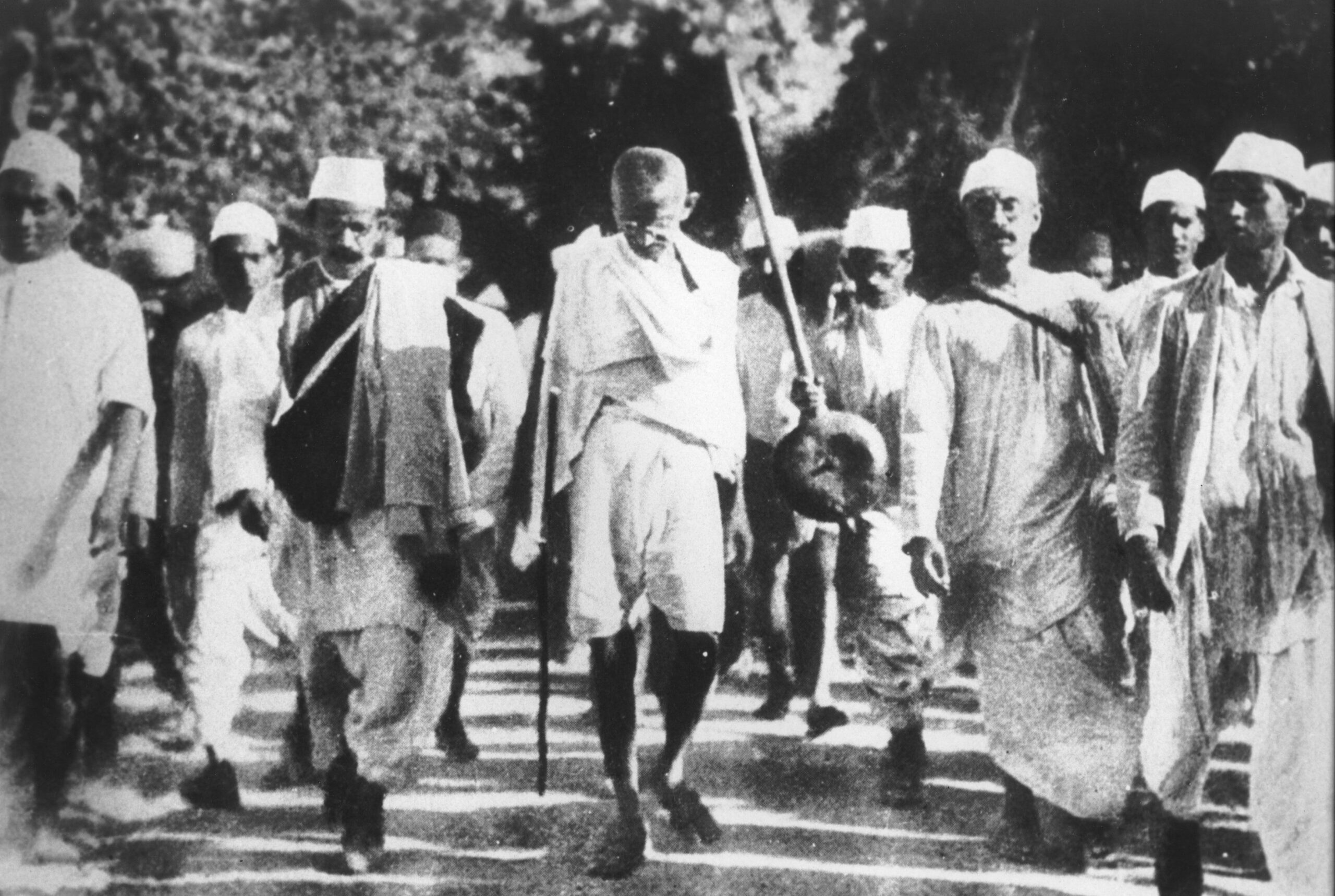
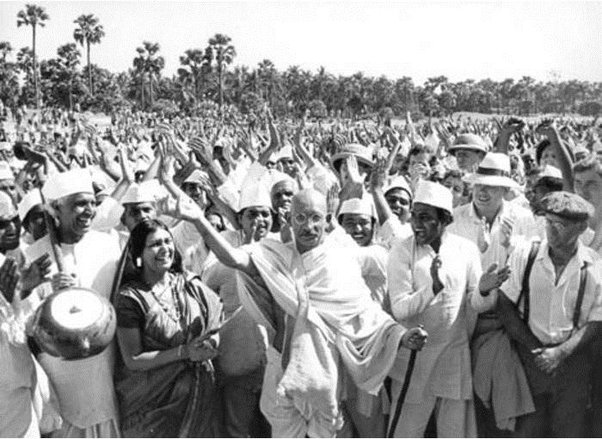
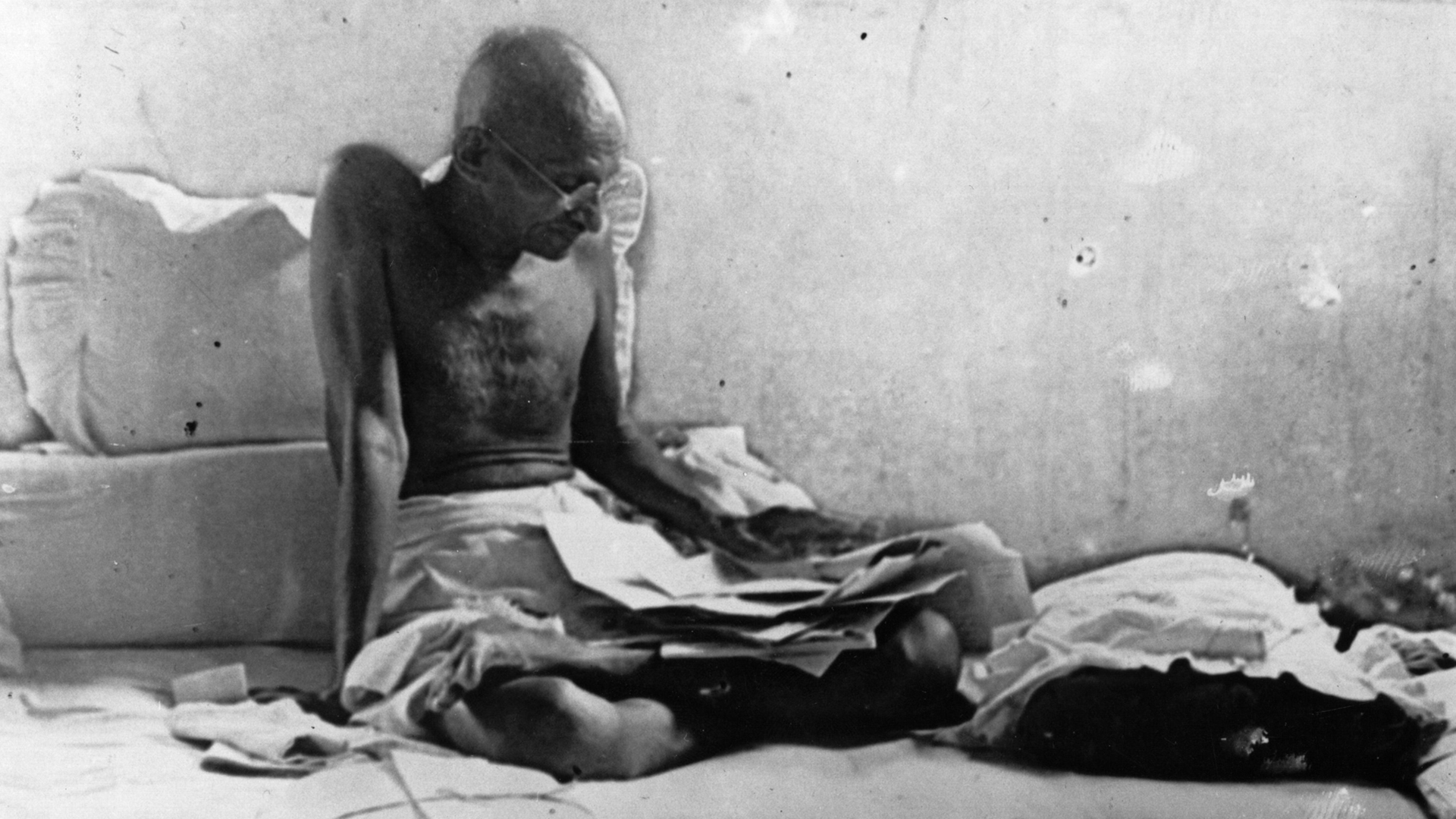
From Wikipedia (Mahatma Gandhi): “Gandhi’s vision of an independent India based on religious pluralism was challenged in the early 1940s by a Muslim nationalism which demanded a separate homeland for Muslims within British India. In August 1947, Britain granted [the colony] independence, but the British Indian Empire was partitioned into two dominions, a Hindu-majority India and a Muslim-majority Pakistan. As many displaced Hindus, Muslims, and Sikhs made their way to their new lands, religious violence broke out, especially in the Punjab and Bengal. Abstaining from the official celebration of independence, Gandhi visited the affected areas, attempting to alleviate distress. In the months following, he undertook several hunger strikes to stop the religious violence. The last of these was begun in Delhi on 12 January 1948 when he was 78.”
The Murder of Gandhi
From Wikipedia (Mahatma Gandhi): “The belief that Gandhi had been too resolute in his defense of both Pakistan and Indian Muslims spread among some Hindus in India. Among these was Nathuram Godse, a militant Hindu nationalist from Pune, western India, who assassinated [killed] Gandhi by firing three bullets into his chest at an interfaith prayer meeting in Delhi on 30 January 1948.”
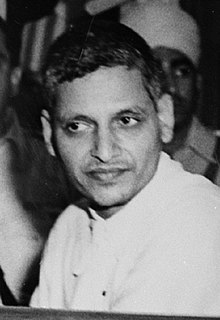
Godse at his trial for the murder of Mahatma Gandhi in 1948
Godse reportedly expressed no remorse at the trial. It was Godse’s third attempt at killing Mahātmā Gandhi; he had previously attempted to stab Gandhi with a knife on two occasions, but Gandhi had refused to file a police report on those occasions because it went against his morals of non-violence and Godse’s punishment would have been violent. When Godse was sentenced to death, two of Gandhi’s sons appealed the sentence because it was violent. However, Godse and some of his accomplices were executed.
During recent Hindu nationalist surges and the increased power of the Bharatiya Janata Party (BJP), some politicians and activists have attempted to restore Godse’s image and defend his actions. However, these efforts have largely been blocked in court.
Gandhi’s Legacy
From Wikipedia (Mahatma Gandhi): “Gandhi’s birthday, 2 October, is commemorated in India as Gandhi Jayanti … and worldwide as the International Day of Nonviolence. Gandhi is considered to be the Father of the Nation in post-colonial India. During India’s nationalist movement and in several decades immediately after, he was also commonly called Bapu (Gujarati endearment for “father,” roughly “papa,”[2] “daddy”[3]).”
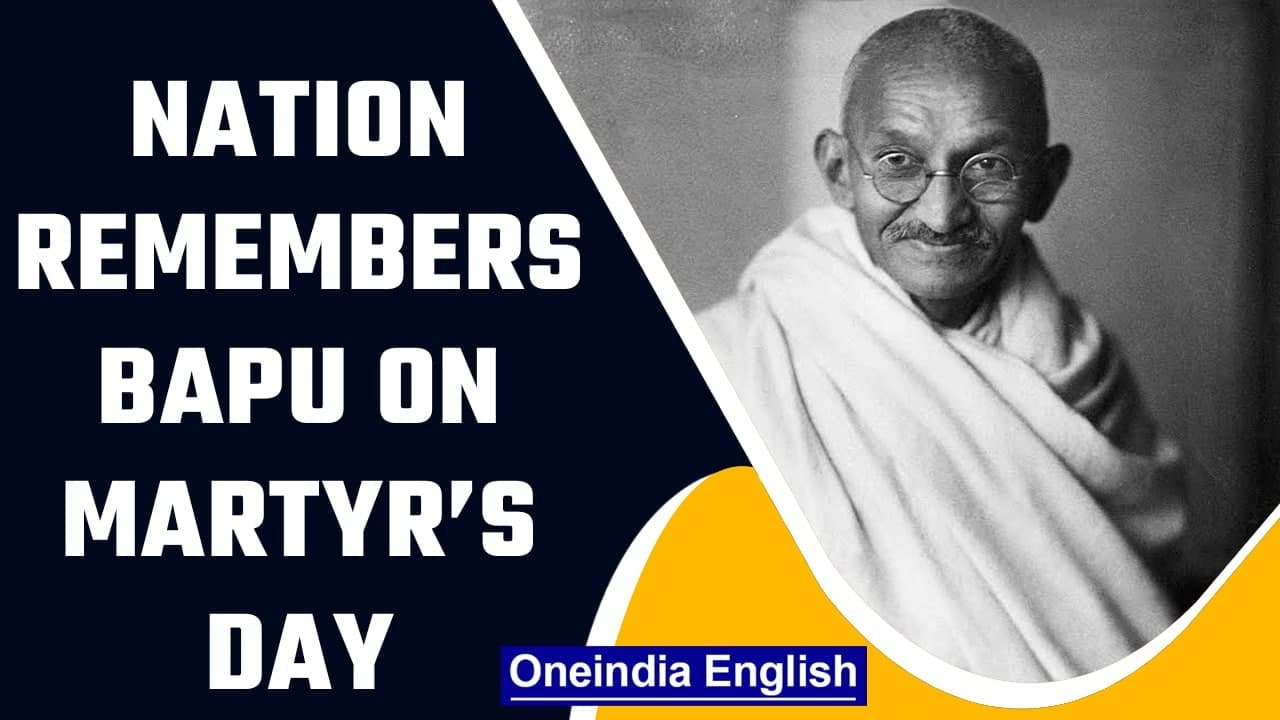
About Gandhi Jayanti
Gandhi Jayanti is one of only three national holidays in India. India is a linguistically and culturally diverse country, so most holidays vary by region or community. However, three holidays are recognized in all Indian states, all of which celebrate India’s sovereignty. Republic Day (January 26th) is similar to the Japanese Constutution Day; it recognizes the establishment of the Indian constitution. Independence Day (August 15th) celebrates the governmental independence of India from the United Kingdom and the transfer of legislative sovereignty to the Indian Constituent Assembly. Finally, Gandhi Jayanti (October 2nd) focuses on a major figure in Indians’ struggle for independence.
From Wikipedia (Gandhi Jayanti): “Gandhi Jayanti is marked by prayer services and tributes all over India, including at Gandhi’s memorial, Raj Ghat, in New Delhi where he was cremated. Popular activities include prayer meetings, commemorative ceremonies in different cities by colleges, local government institutions and socio-political institutions. Gandhi Jayanti Speech, Painting, Essay and Mahatma Gandhi quiz competitions are conducted. On this day awards are granted for projects in schools and the community encouraging a nonviolent way of life as well as celebrating Gandhi’s effort in the Indian independence movement.[3] Gandhi’s favourite Bhajan (Hindu devotional song), Raghupati Raghav Raja Ram, is usually sung in his memory.[4] Statues of Mahatma Gandhi throughout the country are decorated with flowers and garlands, and some people avoid drinking alcohol or eating meat on the day.[5]“
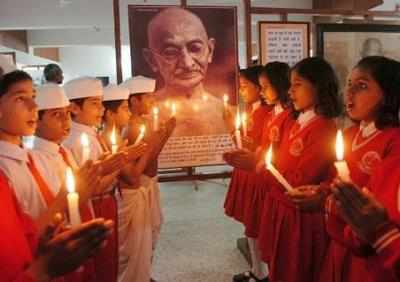
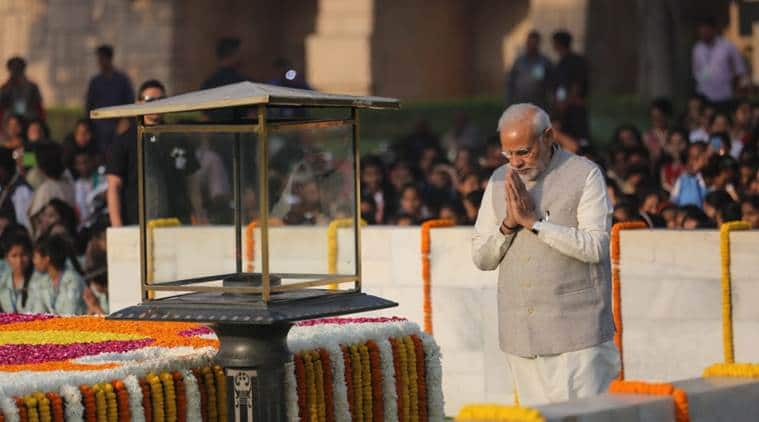
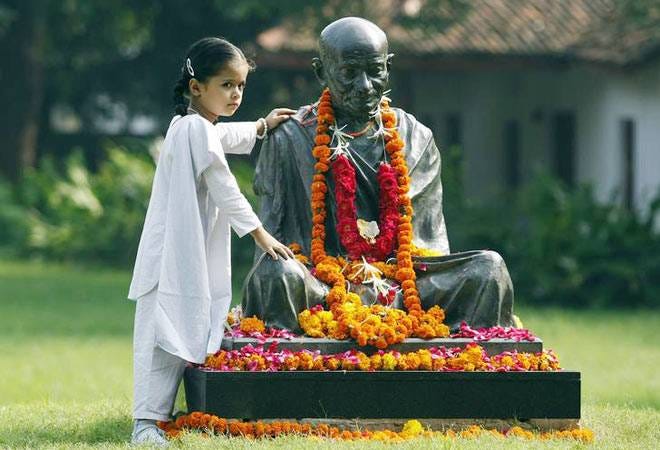
Internationally, the holiday is recognized slightly differently: On June 15th, 2007, the UN General Assembly announced that it had adopted a resolution establishing October 2nd as the International Day of Non-Violence in recognition of Gandhi’s role as a non-violent freedom fighter.